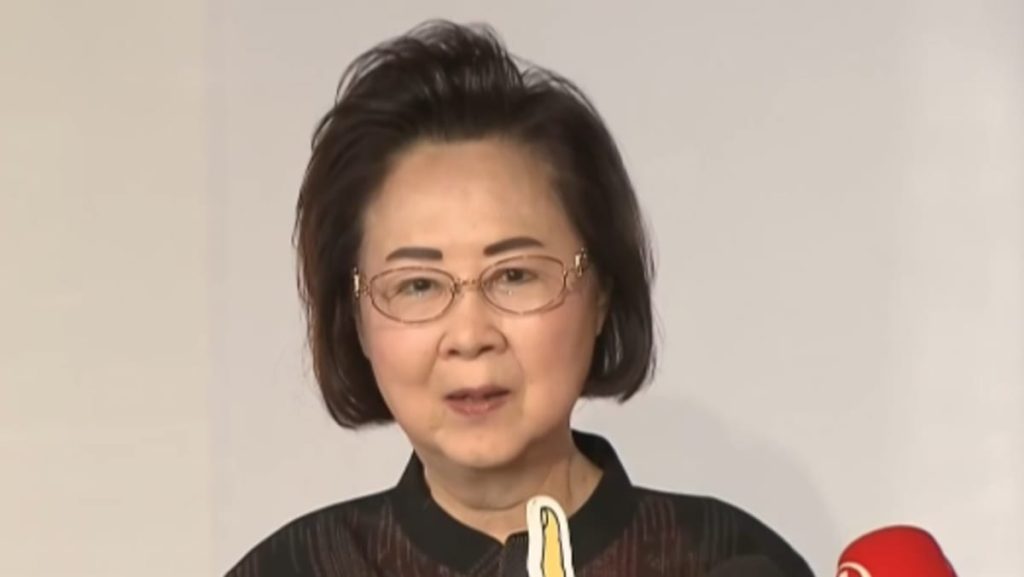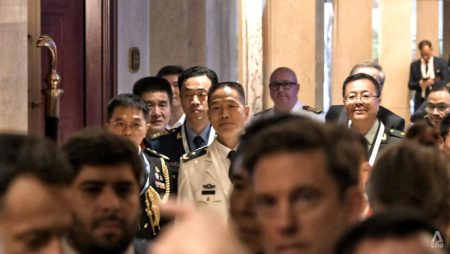The recent passing of renowned romance novelist Chiung Yao has reignited the debate surrounding euthanasia in Taiwan. At the age of 89, Chiung Yao, reportedly in good health, chose to end her life, leaving behind a poignant message that both celebrated a life fully lived and advocated for more humane end-of-life options. This act, while deeply personal, has resonated with many, particularly within the context of Taiwan’s rapidly aging population and the accompanying challenges of elder care. While some view her decision as a brave assertion of autonomy, others express concern and sadness, highlighting the complex ethical and emotional dimensions of the euthanasia debate. This incident underscores the urgent need for a broader societal conversation about end-of-life care and the rights of individuals to make choices about their own mortality.
Chiung Yao’s decision was deeply rooted in her experience with her late husband’s prolonged illness and the ensuing conflict with her stepchildren over his medical treatment. Having witnessed firsthand the struggles of end-of-life care, she became a vocal proponent of voluntary euthanasia. In her final message, she emphasized that her choice was made from a position of strength and fulfillment, not despair. She encouraged others to cherish life and persevere through difficulties, but also advocated for the development of more compassionate methods for those who, like her, reach an advanced age and wish to choose their own exit. This carefully crafted message aimed to distinguish her choice from impulsive acts of suicide, positioning it instead as a considered decision made at the culmination of a long and meaningful life.
Public reaction to Chiung Yao’s death has been mixed. While many mourned her passing and celebrated her literary legacy, others focused on the ethical implications of her final act. Supporters lauded her courage and autonomy, emphasizing the right of individuals to determine their own fate, particularly when facing the challenges of old age and declining health. On the other hand, critics expressed concern about the potential for abuse and the societal implications of normalizing euthanasia. Some argued that her decision sent a dangerous message, particularly to vulnerable individuals, and that greater emphasis should be placed on providing support and resources for the elderly rather than facilitating their deaths. This divergence of opinions highlights the deeply personal and often conflicting values that underpin the euthanasia debate.
The conversation surrounding Chiung Yao’s death is inseparable from the broader context of Taiwan’s aging population and the increasing challenges of elder care. Taiwan is rapidly approaching super-aged status, with a projected 20% of its population over 65 by next year. This demographic shift has placed significant strain on the healthcare system and social support networks, highlighting the need for comprehensive strategies to address the unique needs of the elderly. Issues such as loneliness, isolation, declining physical and mental health, and the financial burdens of long-term care are becoming increasingly prevalent. Chiung Yao’s decision, while individual, reflects these societal pressures and underscores the importance of providing adequate support and resources for the elderly to ensure a dignified and fulfilling end-of-life experience.
Taiwanese authorities, while acknowledging the complexities of the euthanasia debate, have emphasized the importance of palliative care and societal support for the elderly. They point to the high suicide rate among those over 65 as a clear indication of the need for improved mental health services and social integration programs. Numerous initiatives have been launched to address these issues, including the establishment of support centers for senior citizens, the promotion of elderly-friendly housing and communities, and campaigns encouraging intergenerational interaction and support. While these efforts are commendable, the case of Chiung Yao highlights the ongoing need for a more nuanced and comprehensive approach to end-of-life care, one that respects individual autonomy while simultaneously providing robust support and resources for those facing the challenges of aging.
The debate surrounding Chiung Yao’s death serves as a poignant reminder of the importance of open and honest conversations about death and dying. While euthanasia remains illegal in Taiwan, the public discourse generated by this incident underscores the need for a broader societal dialogue on end-of-life care options. This conversation must encompass not only the ethical and legal considerations surrounding euthanasia, but also the practical challenges of providing adequate support and resources for the elderly. By addressing these complex issues head-on, Taiwan can strive to create a society that values both the sanctity of life and the right of individuals to make informed choices about their own mortality. This includes strengthening palliative care services, expanding access to mental health support for the elderly, and fostering a culture of compassion and understanding that empowers individuals to face the final chapter of their lives with dignity and autonomy.










